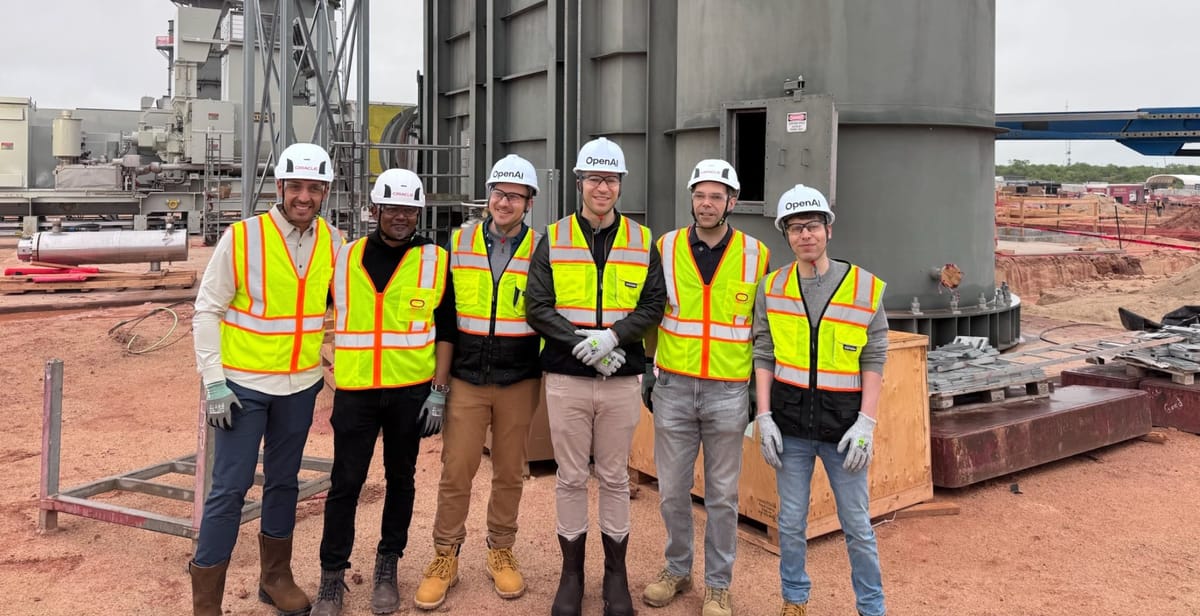OpenAI has submitted an ambitious proposal to the Department of Energy urging the federal government to open up public lands for private AI data centers and supercomputing hubs. The San Francisco-based AI company framed the request as essential to maintaining America's technological edge against China while ensuring AI benefits reach all communities.
Key Points:
- OpenAI wants to build AI supercomputers on federal land with streamlined permitting
- The company emphasizes competition with China as motivation for accelerated development
- The proposal includes financing mechanisms to channel "hundreds of billions" waiting to be invested
"Infrastructure is destiny," OpenAI declares in its submission, arguing that decisions about where and how to build will determine whether the United States "leads or lags in technological innovation, often with far-reaching consequences for economic competitiveness and national security."
History, OpenAI warns, is unforgiving. The Rural Electrification Administration, founded in 1935, intended to bring power to every American farm—yet by 1959, 10 percent remained offline; some Appalachian towns only flicked on their lights in the 1970s; and even today, nearly 30 percent of Navajo Nation households lack electricity. “Infrastructure that skips the hardest-to-reach places leaves lasting scars,” writes Chris Lehane, OpenAI’s Vice President of Global Policy, imploring that “we can’t afford to repeat that mistake with AI.”
This historical reference sets up OpenAI's core argument against what it calls a "top-down approach" to AI infrastructure. Instead, the company advocates for a more market-driven strategy where the government's role would primarily be to speed approvals, provide financing support, and guarantee demand through "long-term federal purchase agreements."
At the heart of OpenAI’s submission is permitting reform. The company calls for firm agency shot-clocks, pre-approved “green-light” categories, and AI-driven review tools so that data center and power projects can break ground in months, not years. These measures aim to untangle the red tape that threatens to stall the very projects meant to secure America’s technological future.
Financing is also critical. OpenAI proposes national vehicles—like a U.S. Investment Accelerator and a Sovereign Wealth Fund—to channel the “hundreds of billions” already lining up to fund AI infrastructure. The submission also urges long-term federal purchase agreements for compute and clean power, guaranteeing demand, and expanding existing tax credits to encompass “AI-grade” equipment. A dedicated AI Supercomputer Loan Facility, backed by DOE’s Loan Programs Office, would ensure every viable project gains affordable capital.
OpenAI isn't just theorizing about infrastructure development. Earlier this year, the company launched Stargate, described as an "unprecedented investment in AI infrastructure" with its first supercomputing campus under construction in Abilene, Texas. The company claims each site will "house cutting-edge AI supercomputers, spreading AI's benefits and infrastructure across the country."
And to be clear, infrastructure is more than the datacenters and compute; it’s people. In its first month, OpenAI Academy—an initiative born of this RFI effort—has reached 1.2 million Americans with free AI training, laying the groundwork for an “AI-ready” workforce. By broadening access, the company argues, the federal government can democratize AI literacy, helping every community plug into this once-in-a-generation technological leap.
All of this unfolds against a backdrop of geopolitical urgency. With Beijing publicly committing to global AI leadership by 2030, OpenAI warns that a slow or scattershot U.S. approach risks letting authoritarian regimes define the rules. A policy agenda anchored in speed, financing, education, and smart land use, it argues, is the only way to ensure democratic values shape AI’s future.

